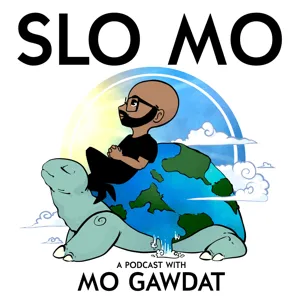What I learned from reading Creative Capital: Georges Doriot and the Birth of Venture Capital by Spencer Ante.
----
Get access to the World’s Most Valuable Notebook for Founders by investing in a subscription to Founders Notes
----
1. He was very important because he was the first one to believe there was a future in financing entrepreneurs in an organized way.
2. He brought a unique style to everything he did.
3. He called his course Manufacturing, but it was really his philosophy of life and of business.
4. At Harvard, Doriot became a Yoda-like figure, dispensing wisdom to an ever-growing group of disciples.
5. He got me motivated to start a business.
6. A real courageous man is a man who does something courageous when no one is watching him.
7. If any information is to be exchanged over whiskey, let us get it rather than give it.
8. You will get nowhere if you do not inspire people.
9. Always remember that someone somewhere is making a product that will make your product obsolete.
10. Decades before economists appreciated the value of technology, Doriot realized that innovation was the key to economic progress.
11. He upset the conventional wisdom by proving that there was big money to be made from patient investing in and the nurturing of small, unproven companies.
12. He believed in building companies for the long haul.
13. I don’t consider a speculator constructive. I am building men and companies.
14. A creative man merely has ideas; a resourceful man makes them practical. I look for the resourceful man.
15. When ARD liquidated its stake in Digital, the company was worth more than $400 million—yielding a return on their original investment of more than 70,000 percent. It was the young venture capital industry’s first home run.
16. Doriot never figured out a way to appease government regulators, who repeatedly threatened to put ARD out of business.
17. More than any other person, Doriot pioneered the transition to an economy built on entrepreneurship and innovation.
18. Celebrating anything less than the best possible result smacked of contentment
19. A commercial bank lends only on the strength of the past. I want money to do things that have never been done before.
20. Every successful man can usually point to a mentor that helped guide his career.
21. One of things that profoundly affected Georges was his father getting wiped out financially.
22. Doriot would go on to mentor thousands of other students, giving them advice, finding them jobs, guiding them in their careers, and taking an extraordinarily personal interest in each and every one of their futures.
23. Doriot believed strongly in forming a close bond between student and teacher.
24. Doriot described with a palpable sense of glee the importance of imparting a strong work ethic.
25. Doriot encouraged his students to ponder the purpose of life and business. It was a highly unusual technique but the students realized Doriot was giving them knowledge of much deeper value.
26. Always challenge the statement that nothing can be done about a certain condition
27. There was still a fire that burned in Doriot. A passion that kept him searching for his next mission impossible.
28. Doriot was a workaholic with no family responsibilities to divert his energies
29. A committee is an invitation to do nothing.
30. Lack of competent personnel was his most vexing problem.
31. One word is omitted from Doriot’s vocabulary. That word—“impossible.” If a thing must be done, it can be done.
32. Doriot was putting in twelve-hour days, seven days a week.
33. We cannot depend safely for an indefinite time on the expansion of our old big industries alone. We need new strength, energy and ability from below.
34. A team made up of the younger generation, with courage and inventiveness, together with older men of wisdom and experience, should bring success.
35. On his desk, Doriot kept a stopwatch. “Sometimes I use it to see how long it takes someone in a meeting to tell me the same thing three times,” he said.
36. An average idea in the hands of an able man is worth much more than an outstanding idea in the possession of a person with only average ability.
37. The riskiest investments, they were learning, held the potential to generate the greatest financial returns and the highest personal satisfaction
38. He knew that if entrepreneurs weren’t self-driven and a bit egotistical they’d be punching the clock for IBM or General Electric.
39. Creative ability knows no boundaries.
40. It’s very important to cultivate the memory of great people.
----
Get access to the World’s Most Valuable Notebook for Founders by investing in a subscription to Founders Notes
----
“I have listened to every episode released and look forward to every episode that comes out. The only criticism I would have is that after each podcast I usually want to buy the book because I am interested so my poor wallet suffers. ” — Gareth
Be like Gareth. Buy a book: All the books featured on Founders Podcast



